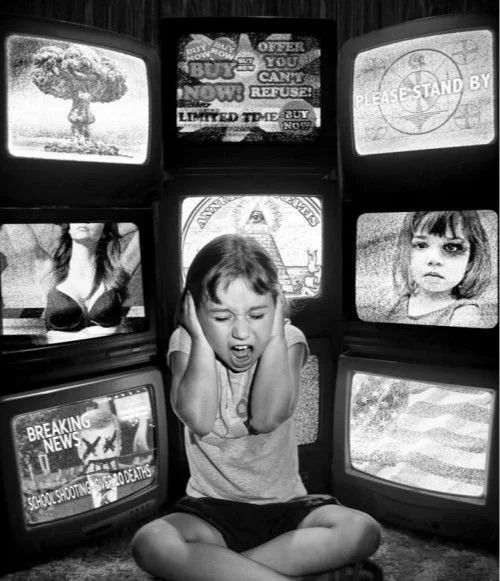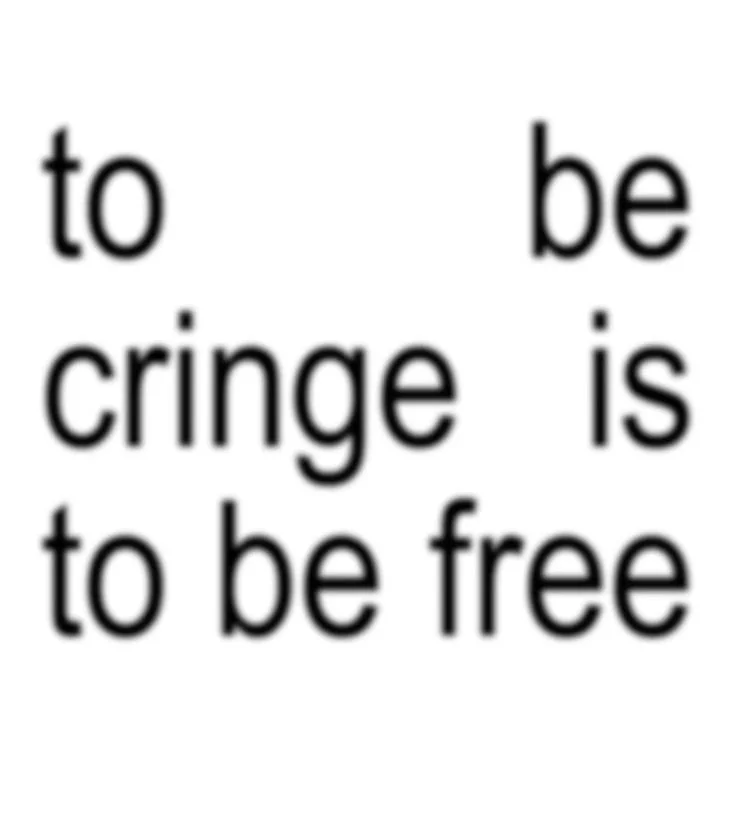From Meme to Meaning: How to Create a Culture of Caring
In 2019, a sixteen year old girl stood in front of the United Nations and said, “How dare you.” And we turned her into a meme. A teenage girl advocating for climate justice — GIFified.
Greta Thunberg was visibly, passionately, and unapologetically angry. She wasn’t trying to be cute or quotable, she was desperate. And instead of matching her urgency, we laughed. The world — our world — young, plugged-in, and self aware to a fault — took her rage and repackaged it into something ironic, shareable, and easily dismissed. She became a punchline before she could be fully heard, her message lost between the weeds of various reposts and comment sections.
This is the Greta Thunberg Effect: the way sincerity, especially from someone young or “too emotional,” gets filtered through a lens of sarcasm and aesthetic detachment until it’s stripped of its meaning entirely. In our culture, it’s safer to joke than to care.
image via Pinterest
We live in a time where “not caring” is considered cool. Whether in dating, activism, or on your For You page, detachment is the trend. The guy who ghosted you is glorified for being emotionally unavailable. The girl who is mysterious and unreadable is the “it” girl. Being hot and unbothered is the brand — and god forbid you feel anything too deeply. Vulnerability has become cringe and caring is embarrassing.
That’s exactly why Greta was so easy to ridicule. She cared so hard, so publicly, that it made people uncomfortable. Instead of examining that discomfort, we defaulted to mockery. When we do this, we give in to the memeification of serious politics, keeping the spotlight on clippable political moments instead of the atrocities said politicians are committing. We created TikTok sounds from her “how dare you” moment, not in solidarity, but in satire. And it wasn’t just extreme right-wing trolls or climate change deniers, it was all of us. The same generation that recycles carousel infographics about “raising awareness” on Instagram turned a climate activist into a parody because it was easier than listening. Because as long as we repost an infographic on our stories about whatever foreign conflict is trending at the moment, we can call ourselves an “advocate” and move on with our day.
Performative activism is a disease spreading through our country, and specifically, our age group. For most of us, engaging in performative activism is unintentional. Beneath the surface of reposts and hashtags is a generation that genuinely wants to care, to act — but often feels overwhelmed, under-informed, and unsure of how to make a real impact. In many cases, it’s not carelessness or hypocrisy driving us, our urgent pull towards action is just interrupted by uncertainty on how to proceed. So what do we resort to? Humor. Avoidance.
The tendency to deflect sincerity with irony is our generation’s coping mechanism — we resort to an apathetic ad hominem because the reality of the world feels like too much. In previous generations, individuals had a level of blissful ignorance to hide behind in difficult times. But now, between social media, the nonstop news cycle, and four hours of daily screen time, crisis after crisis hits us in the face like a fire hose: climate disasters, political chaos, social injustice, mental health crises, AI panic, rent we can’t afford.
We’re overstimulated, overwhelmed, and way under-equipped. So what do we do? We scroll. We joke. We repost. It feels like action, but it’s really just a buffer. A way to keep caring at arm’s length so we don’t get swallowed whole by it.
But the problem is, this universal detachment isn’t synonymous with neutrality. It’s dangerous and contagious. When the baseline for social behavior is “don’t care too much,” we begin building our entire identity around disengagement. It bleeds into how we approach politics, relationships, and even ourselves. We’re more likely to repost than protest, more likely to leave someone on read than be honest about our feelings. We start to believe that apathy is power, when really, it’s paralysis.
And let’s be honest — this kind of culture isn’t just emotionally exhausting and politically polarizing, it’s also sexist and seeping into our real life relationships. The romanticization of the nonchalant man and the mysterious woman feed directly into outdated gender scripts: men shouldn’t have emotions, women should be unattainable. We’re reinforcing the idea that emotional expression is weakness, especially if it is coming from someone young, femme, or passionate. Sound familiar?
We are burning out on the inside while pretending to be chill on the outside. That dissonance shows up everywhere. People are anxious, depressed, and losing focus, and the solution can’t be “vibe harder.” We need to shift. Away from avoidance, but by daring to care. Even if it’s uncomfortable, even if it’s messy, even if it’s cringe.
Because caring is messy. It’s human. It’s what makes change possible.
That doesn’t mean we need to stop making memes or laughing at the absurdity of the world. Humor does help us survive, but maybe it’s time we use that humor to connect, not deflect. Maybe we turn our feeds into something intentional rather than reactionary. Maybe we actually act on the things we claim to care about — vote, volunteer, talk to people, do the unsexy stuff. Maybe we stop waiting for someone else to fix it and we realize we are the ones who can enact change on the issues we post about.
So when the next Greta Thunberg takes the mic, don’t turn her into a trend. Don’t clip her sincerity into a soundbite. Just listen. Let her be angry. Let her be loud. Let her be real. Instead of laughing, stand with her.
Because in a world on fire, the sexiest thing you can do is give a shit.
image via Pinterest



